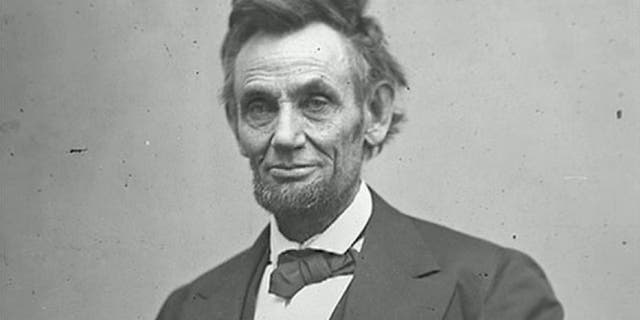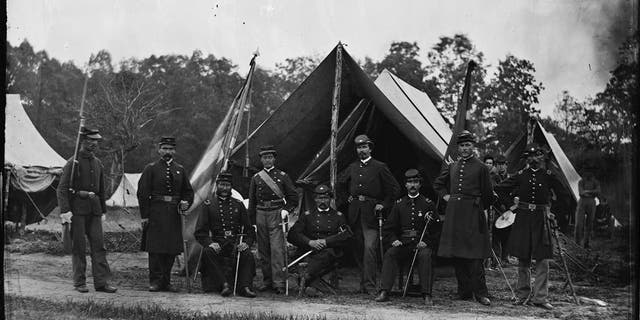By John Cribb
Abraham Lincoln got one thing very wrong on Nov. 19, 1863, while dedicating a new military cemetery at Gettysburg, Pennsylvania, when he said the world “will little note, nor long remember what we say here.”
The Gettysburg Address went down in history as perhaps the greatest speech given on American soil. Generations of school children have memorized and studied it. Let’s hope that tradition continues because it speaks to our nation and our future in ways few political documents do.

The two-minute address came at a time when the North had grown weary of war. Lincoln used his brief remarks to explain why the Union must continue the fight.
He started with the now-famous words “Four score and seven years ago.” That poetic way of saying “eighty-seven years ago” took his audience back to 1776, the year of the Declaration of Independence, when “our fathers brought forth on this continent a new nation, conceived in liberty, and dedicated to the proposition that all men are created equal.”
Lincoln had several things in mind at Gettysburg. For one, he knew the country was very young, less than a century old.
The American experiment in freedom and self-rule was unproven, and it was being tested hard to determine, as Lincoln said, if democracy could “long endure.” The eyes of the world were on this country, watching to see if we could survive a civil war.

Field and staff officers of the 69th Pennsylvania Infantry, a volunteer regiment in the Union army, at Gettysburg, Pennsylvania during the American Civil War, June 1865. Photo by William Morris Smith. (Photo by Library of Congress/Getty Images)
Lincoln knew something many of us today have forgotten. He knew that throughout history, the vast majority of people had lived without much freedom. They had lived under the thumbs of kings, emperors and tyrants.
Millions around the world had lived in bondage. By one estimate, at the end of the 18th century, just a few years before Lincoln was born, more than three-quarters of the world’s population lived in slavery, serfdom, indentured servitude or some other form of bondage.
Lincoln knew that if the country fell apart, the great experiment in freedom and self-rule would likely fail.
The world had been waiting centuries for a place like the United States, one dedicated to the ideal that all people have God-given rights to life, liberty and the pursuit of happiness.
Lincoln knew that if the country fell apart, the great experiment in freedom and self-rule would likely fail. The hopes of millions around the world, here and abroad, would be dealt a crushing blow.
That’s why, at end of the Gettysburg Address, he said the Union had to keep fighting so that “government of the people, by the people, for the people, shall not perish from the earth.”
Notice he did not say “shall not perish from this country.” He said, “from the earth.” He knew the stakes.
Lincoln called for dedication to the unfinished work of bringing “a new birth of freedom” to the country, including freedom for millions of enslaved Americans.
It is a call that echoes down to our time. As Lincoln knew, the task of defending liberty and our inalienable rights is never finished. Each generation, in its own way, must take it up, or freedom perishes.
If Lincoln were here today, he would no doubt be astounded by the progress of freedom and equality. It has sometimes taken far too long, but in many ways, this country has led the world in bringing rights and opportunities to millions.
It is also not hard to imagine Lincoln’s alarm over threats to liberty.
Abroad, China grows in power, repressing hundreds of millions on a scale unimaginable in Lincoln’s time. In Afghanistan, millions suddenly find themselves living under a brutal regime. Freedom House, which monitors liberty around the world, reports that global freedom has declined for 15 straight years.
Here at home, extreme political correctness and cancel culture destroy careers. Many college campuses, rather than standing for free speech and thought, have become places where faculty and students shout down views they don’t like.
Big tech companies choose which opinions they’ll allow on social media. Federal, state and local governments declare unprecedented mandates to combat coronavirus. According to the Heritage Foundation, the United States, long the world’s economic engine, now ranks only 20th among nations in terms of economic freedom.
As Lincoln knew, it does not take a fiery civil war to destroy freedom. It often slips away little by little, in times of peace, until people wake up to discover it gone.
Read More From The PatriotAmerican
In that sense, Lincoln’s words in 1863 apply to every one of us. They still call on every American to stand up for freedom at the ballot box, on campuses and in town halls.

